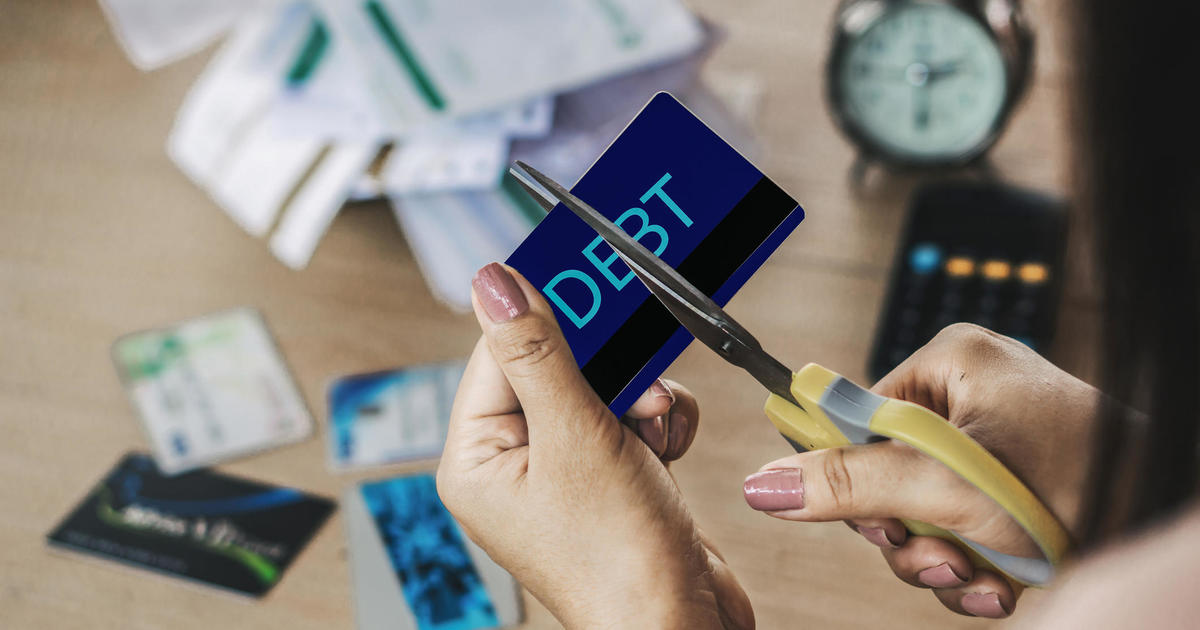Debt consolidation vs. debt settlement: Which is better?
Credit card debt can be costly. Between interest rates that average over 20% and payment structures that do little to address your principal balance, paying your credit card debt off could involve thousands of dollars in interest and decades of monthly payments. But, your credit card debt doesn't have to cost you nearly as much money, nor take as much time to pay off.
Leading debt relief options may offer significant interest savings and even reduce your principal balance. And, debt relief services could shave years off of your payoff timeline. Debt consolidation and debt settlement are two popular debt relief options that may be able to do just that. But which is better? That's what we will break down below.
Talk to a debt relief expert now to find out how much relief you could realize.
Debt consolidation vs. debt settlement: Which is better?
Debt consolidation and debt settlement are both viable options. And whether debt consolidation or settlement are better for you depends on your financial situation. But before you choose one or the other, it's important that you know how each works.
- Debt consolidation: Debt consolidation is a process that consolidates multiple high interest debts into one account, presumably with a lower overall interest rate. This can be done through a debt consolidation loan (use one loan to pay off all of your credit cards) or as a service provided by a debt consolidation company (you send one monthly payment to the debt consolidation company and they send individual payments to your lenders on your behalf following interest rate negotiations). In either case, debt consolidation has the potential to offer significant interest savings, reduce your overall monthly payment obligation and get you out of debt faster than you would on your own if you just made minimum payments.
- Debt settlement: Debt settlement is a service through which expert negotiators attempt to negotiate your principal balance down. This process involves foregoing payments to your credit card companies and saving money for a settlement that's later negotiated by an expert. Once complete, your debts will usually be reported as "settled for a lesser amount," rather than "paid as agreed." As such, debt settlement could have a significant impact on your credit score. Nonetheless, these programs are a valuable option for certain borrowers.
Find out how much money you could save with a debt relief service now.
When debt consolidation is better
"When your debt is a manageable amount and you're able to make regular payments, it's worth considering consolidation vs settlement," explains Lamine Zarrad, CEO and founder of the credit-building tool, StellarFi. There are a couple of reasons that's the case:
- Savings through interest reduction: Debt consolidation has no impact on your principal balance. Instead, your savings are usually created through the reduction of interest and implementation of a fixed payment plan (rather than variable payments based on your balance as is the case with credit cards). This may not lead to as much relief as a debt settlement service that negotiates away a portion of your principal balance but is generally fitting if you can afford your minimum payments.
- Quality loans often require good credit: If you choose the debt consolidation loan option, you'll likely need a good credit score and positive borrower profile to access the best rates and terms. That may not be the case if you can't afford to make your minimum payments, but it could be if you make your payments consistently. Though, good credit isn't necessary if you choose the debt consolidation service option.
In either case, debt consolidation often leads to interest savings and more manageable monthly payments. And, since debt consolidation loans and programs typically come with a fixed payment plan and lower interest rates, you may be able to get out of debt faster while making lower total monthly payments - providing relief in terms of time and money.
When debt settlement is better
"Debt settlement can be seen as the last alternative for bankruptcy when you're much further down the road," says Zarrad.
One of the reasons debt settlement is usually the better option if you can't afford your credit card payments is because these programs may provide a significant level of relief. Debt settlement services attempt to negotiate a meaningful portion of your credit card balances away - which can make a sizable difference in your minimum payments.
Also, if you're missing payments, it's unlikely that you'll qualify for a debt consolidation loan. Moreover, if you're facing financial difficulties, your debt settlement provider may be able to use your financial hardship to negotiate the best possible settlement.
On the other hand, it's important to weigh the pros and cons before you sign up for this type of service. Debt settlement usually damages credit scores. Though, you may be able to rebuild your score once your debts are settled, that process could take a few years.
The bottom line
Debt consolidation and debt settlement are both effective ways to eliminate credit card debt. The better option for you depends on your financial situation. If you can make your minimum payments each month, but don't see a way out of debt anytime soon, debt consolidation will likely be fitting. If you're struggling to make your minimum payments, debt settlement may be your better option. In any case, you should reach out to a debt relief expert now to save time and money as you pay off your credit card debt.





